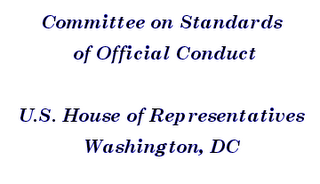Thursday, October 12, 2006
Investigation Into Cover-up Of Pagegate Proceeds

Here's the latest on the unfolding investigations in Washington into the cover-up of the Foley matter.
With House Speaker J. Dennis Hastert denying personal knowledge of former representative Mark Foley's activities, investigators for the House ethics committee are bearing down on three senior members of Hastert's staff to determine when they learned of Foley's actions and whether they passed on their knowledge to the speaker.
The three -- chief of staff Scott Palmer, deputy chief of staff Mike Stokke and counsel Ted Van Der Meid -- have formed a palace guard around Hastert (R-Ill.) for years, attaining great degrees of power and unusual autonomy to deal with matters of politics, policy and House operations. ...
Within Hastert's operation, some staff members appear to point accusingly at Van Der Meid, who is in charge of ethics matters and is widely believed to have steered Hastert wrong before.
Van Der Meid, a former chief Republican counsel for the House Committee on Standards of Official Conduct, helped engineer the failed effort to change GOP ethics rules to allow an indicted lawmaker to remain in the leadership. The power play was designed to keep then-House Majority Leader Tom DeLay (R-Tex.) at his post, but it backfired spectacularly, embarrassing many Republicans and leaving a blemish on Hastert's record.
One House leadership aide said Van Der Meid lacks the personal connections with the speaker that Palmer and Stokke have, making him the most vulnerable of the three.
The staff issue will be front and center today, as the ethics committee takes the testimony of Kirk Fordham, Foley's former chief of staff, who is to testify that in 2003 he alerted Palmer to Foley's behavior. A source with knowledge of the events said Fordham will detail repeated efforts by then-House Clerk Jeff Trandahl to raise alarms about Foley's interest in young pages, and Fordham's own confrontations with Foley. ...
Both Fordham and Trandahl decided that Fordham should call Palmer, according to the source. In a phone call with Palmer, Fordham expressed his concern about Foley's "over-friendliness" to pages, although Fordham did not specifically mention that Foley was seen outside the pages' dorm. Palmer said he would talk to Foley about it; two days later, Fordham checked in with Palmer. Palmer said that he spoke with Foley and that he told the speaker about it, the source said.
Palmer has said: "What Kirk Fordham said did not happen." ...
A current staff member who has corroborated Palmer's meeting with Foley has also offered to cooperate with investigators. ...
The speaker's own timeline points to Van Der Meid and Stokke as central players in the Foley matter. After Alexander's staff alerted a low-level Hastert aide in the fall of 2005, Stokke directed the information to Van Der Meid. Later that day, Stokke met with Alexander's chief of staff, then summoned Trandahl to the speaker's office. Later, Trandahl informed Van Der Meid that action had been taken to stop Foley's communications with the Louisiana youth.
A senior GOP aide, speaking on the condition of anonymity for fear of retribution, said it made little sense to have a political hand such as Stokke handle the Foley matter, a delicate issue involving personnel questions and possible legal violations.
"Did they make an affirmative decision to have the political guy work on this?" the GOP staffer asked. "It clearly was a bad damn idea."
Nowhere in the speaker's timeline is Palmer mentioned. But former leadership aides question how a powerful chief of staff could have been left out of such complicated deliberations and how they would have been kept from Hastert.
The latter point is especially true if Foley's behavior came to Palmer's attention in 2003, one former aide said. In recent months, as the House has become consumed in scandal and political trouble, Hastert has been less engaged in the day-to-day activities of the House, he said. That was not true in 2003, however, the former aide added.


